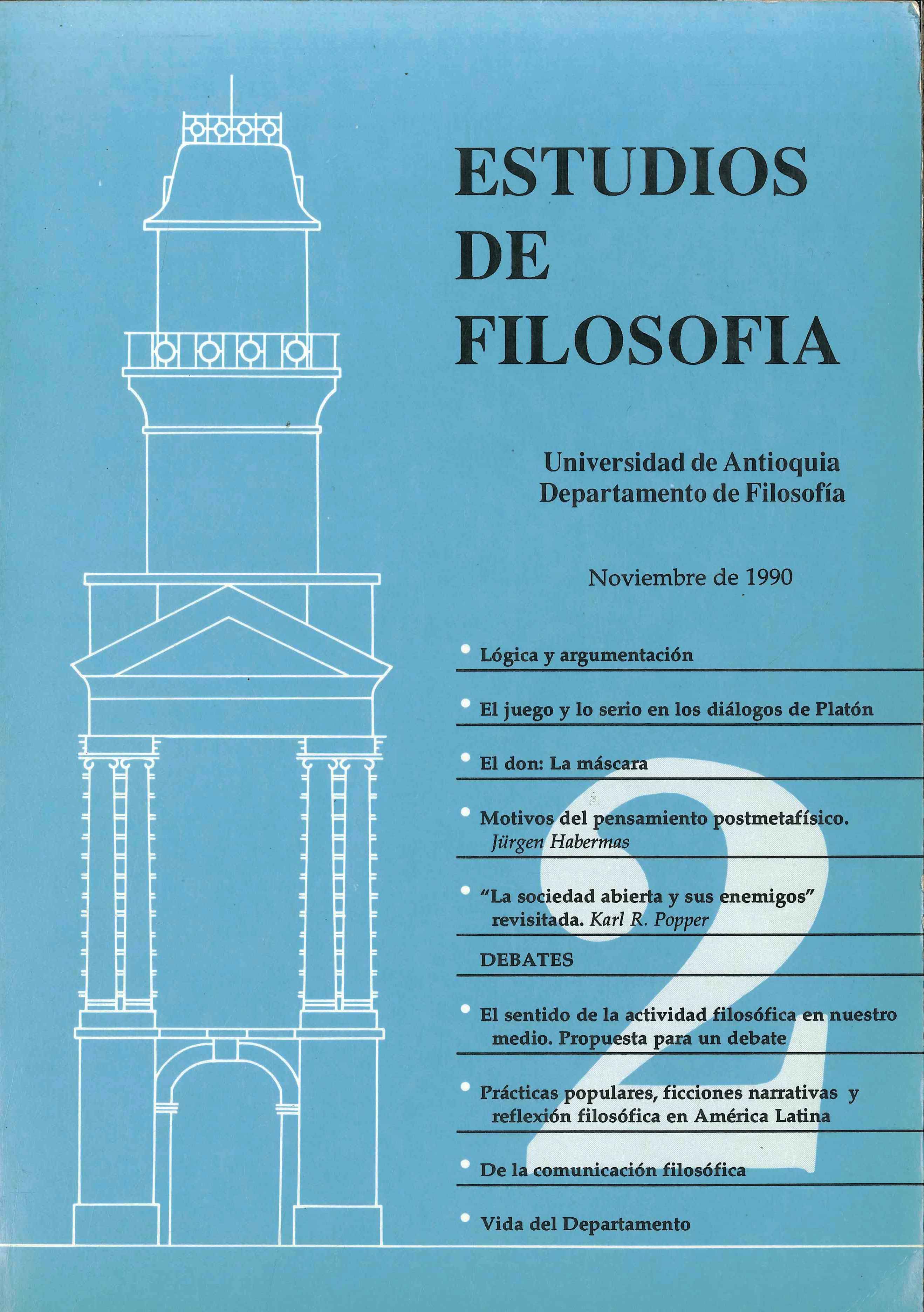Logic and argumentation
DOI:
https://doi.org/10.17533/udea.ef.339715Keywords:
Perelman, argumentation, rhetoric, logic, universal auditoriumAbstract
In its first part, this paper offers a summary of Chaim Perelman and Lucie Olbrechts-Tyteca's theory of argumentation. The essential elements of this theory are stressed: its point of departure as a critique of the classical Western conception of rationality, assumed, since Descartes, as being identical with demonstrative reason; the Aristotelic origin of argumentation in the Rhetoric or Art of Persuasion; the concept of a "universal auditorium", as addressee of the arguments; the notion of what is "reasonable" and its relation to the concept of what is "rational".
The second part submits the authors' position regarding the relationsbip between what is rational and what is reasonable to criticism. A thesis is supported according to which what is rational is the necessary condition of what is reasonable (a position that is not accepted by Perelman and Olbrechts); to achieve this, it is appealed to Piaget's ideas on the existence of a "natural logic"; the concept of Calculus of natural deduction is employed as a type of logical
formalism applied to argumentation; Apostel and Grice's ideas concerning conversational implication are used and the formalism developed by von Wright for the logical analysis of action is applied, in order to classify the elementary types of argumentative action.
Downloads
Downloads
Published
How to Cite
Issue
Section
Categories
License
Copyright (c) 2019 Alfonso Monsalve

This work is licensed under a Creative Commons Attribution-NonCommercial-ShareAlike 4.0 International License.
Authors who publish with this journal agree to the following terms:
1. The Author retains copyright in the Work, where the term "Work" shall include all digital objects that may result in subsequent electronic publication or distribution.
2. Upon acceptance of the Work, the author shall grant to the Publisher the right of first publication of the Work.
3. The Author shall grant to the Publisher a nonexclusive perpetual right and license to publish, archive, and make accessible the Work in whole or in part in all forms of media now or hereafter known under a Creative Commons Attribution-NoCommercia-ShareAlike (CC BY-NC-SA 4.0), or its equivalent, which, for the avoidance of doubt, allows others to copy, distribute, and transmit the Work under the following conditions: (a) Attribution: Other users must attribute the Work in the manner specified by the author as indicated on the journal Web site;(b) Noncommercial: Other users (including Publisher) may not use this Work for commercial purposes;
4. The Author is able to enter into separate, additional contractual arrangements for the nonexclusive distribution of the journal's published version of the Work (e.g., post it to an institutional repository or publish it in a book), as long as there is provided in the document an acknowledgement of its initial publication in this journal;
5. Authors are permitted, and Estudios de Filosofía promotes, to post online the preprint manuscript of the Work in institutional repositories or on their Websites prior to and during the submission process, as it can lead to productive exchanges, as well as earlier and greater citation of published work (see The Effect of Open Access). Any such posting made before acceptance and publication of the Work is expected be updated upon publication to include a reference to the Estudios de Filosofía's assigned URL to the Article and its final published version in Estudios de Filosofía.















